On April 16, 1746, the Jacobite Uprising met its end on Culloden Moor, near Inverness. Led by “Bonnie” Prince Charlie, the mercurial Charles Edward Louis John Casimir Sylvester Severino Maria Stuart, the so-called Jacobites sought to restore the Catholic Stuarts to the Scottish throne in lieu of the protestant Hanoverians who had ascended following Queen Anne’s death in 1714.
Reams of history books have been written over the centuries about the Battle of Culloden, the foolhardiness of “Bonnie” Prince Charlie, the dubious military tactics, and the wasted lives of young clansmen caught as pawns in the thrust and parry of the political elite. Culloden represents so much more than a lost battle or even the end of an insurrection. Culloden represents the bitter pill of subjugation, the bone in the throat of those starving for independence lost, the shattering of a proud culture divided by scarcity.
Like the bones of a child, Culloden Battlefield has been preserved lest the memory fleet. The grounds are manicured and the adjoining and recently updated museum is amazing, but this is not an easy visit. Ghosts abound.
Culloden Moor lies just 15 minutes east of Inverness (and extremely near the Clava Cairns). It’s a wide, flat span of land some might find ideal for a battle, though it utilizes nothing in the way of natural defenses. I visited on a partly cloudy day for the first time in nearly ten years and was greeted by throngs of people, a gift shop, café, and a detailed museum that prohibited photos.
While I can’t rightfully show you photos of the museum, it’s truly an impressive accompaniment to the somber grandeur of the battlefield. Detailed panels and exhibits replete with artifacts salvaged from the battlefield take the visitor through the events leading up to the battle. You get a sense of rising tension as the pieces fall into place, and the climax comes in the 360-degree battle immersion theatre. I admit to scoffing at the corniness of this idea when I learned of its presence in the updated visitor experience, but the reality is harrowing. It is a truly terrifying and horrifying experience — amazing, too, yes — but take care with any anxiety conditions.
The visitor centre deposit you on the battlefield now that the events of the battle are fresh in mind. Gravel walking paths circumnavigate the battlefield, and informational boards stand where important events occurred.
“Bonnie” Prince Charlie did not lack for ambition. He didn’t just seek to free Scotland, he sought to invade England and cast down the Hanoverians for good. In his mind this was the only way to ensure an independent Scotland (he probably wasn’t wrong…). When the Jacobites took Carlisle spirits were high. The army swelled to 8,000 warriors and was supplemented by Irish and French fighters.
The English army, led by the Duke of Cumberland, was 12,000 strong and even reinforced by some Scots. His forces harried the Jacobites, driving them from England to Stirling and from Stirling to Inverness. Throughout history, one of Scotland’s greatest challenges has been uniting under common purpose. In its absence, plans are sabotaged, infighting breeds, and progress is lost. While the Jacobites sought to restore a Catholic monarch, most of Scotland was protestant!
The Battle of Culloden was the climax and swan song of the Jacobite Rebellion. The battle lasted less than an hour. In that hour, 1,600 men lost their lives on Culloden Moor — 1,500 Jacobites. It was a grisly and swift defeat. Those who escaped were hunted down in the ensuing days and killed. “Bonnie” Prince Charlie evaded the English for five months before finding exile in France.
I wander the quiet battlefield in morose silence. The despair and fear and anguish still lie heavy upon this land. There are grave markers for the clans who fought and died on Culloden: Fraser, Mackintosh, Stewart, MacGillivray, and others.
What did they fight for? “Bonnie” Prince Charlie? Catholicism? Independence? Dignity? Pride?
Perhaps all and many more. Who can say what the Jacobites might have won had their endeavor been successful. We know what was lost, however: Hope for an independent future. Jacobites and their supporters were imprisoned, put on trial for high treason, and killed or sentenced to hard labor in British colonies. Clergymen were forced to give immutable oaths to the Hanoverian dynasty. Jacobite-supporting lords were stripped of their titles and lands.
England worked quickly to unite the crowns and white-wash highland culture. Highland dress was banned. Perhaps the English of the time thought if they could make Scots forget their culture then what would these proud, stoic people have to fight for? It’s an ancient tactic, one employed by every empire, secular and religious.
It just goes to show you the English of the 18th Century never understood their northern neighbors. What fueled the Jacobite Rebellion of 1745 remains today like a seed in frozen earth, waiting for the thaw. You would have to be insensate to miss the feeling in the air of Scotland.
Culloden Battlefield today serves as a reminder of that difficult period in Scottish history. It’s a remorseful, austere place full of lessons that should not be forgotten, like the fact that Culloden was the last battle fought on British soil.
Before that, the Clifton Moor Skirmish was the last battle fought on British soil.

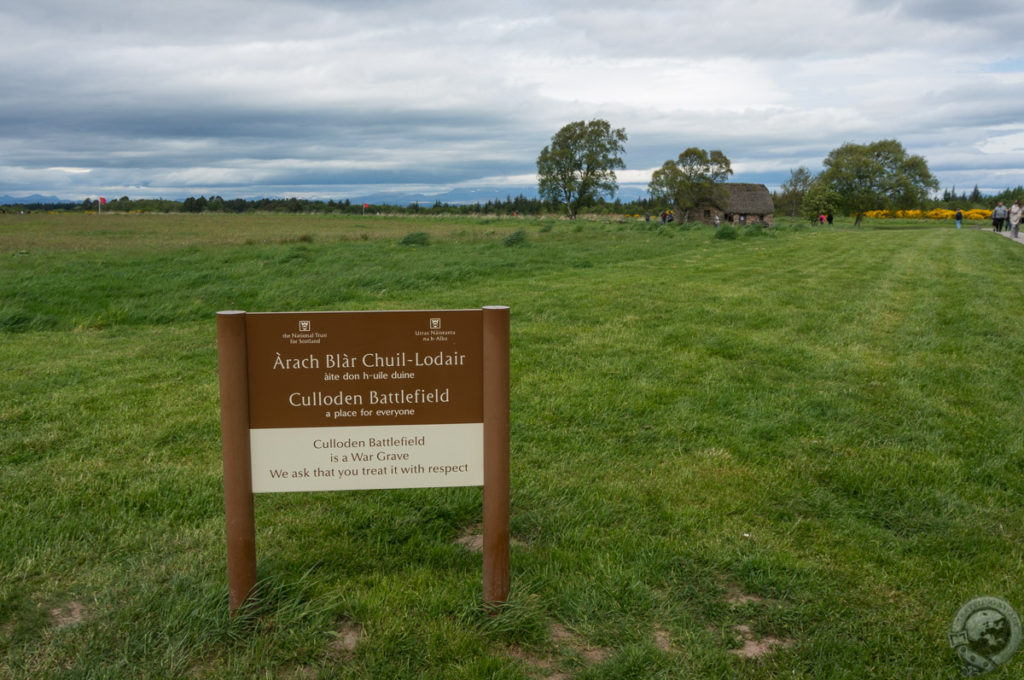
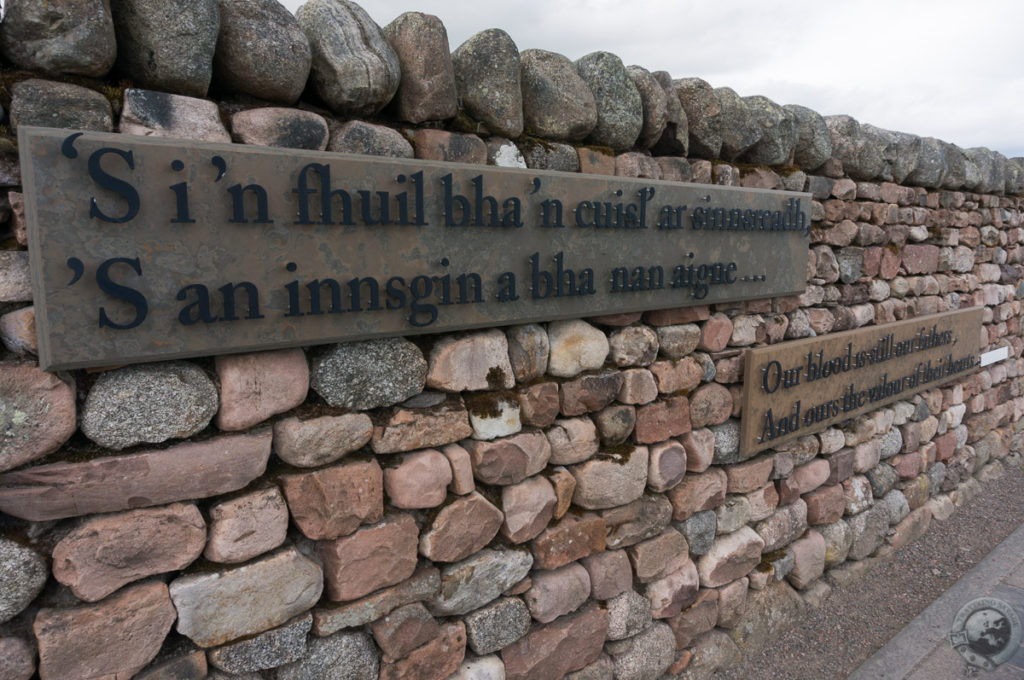
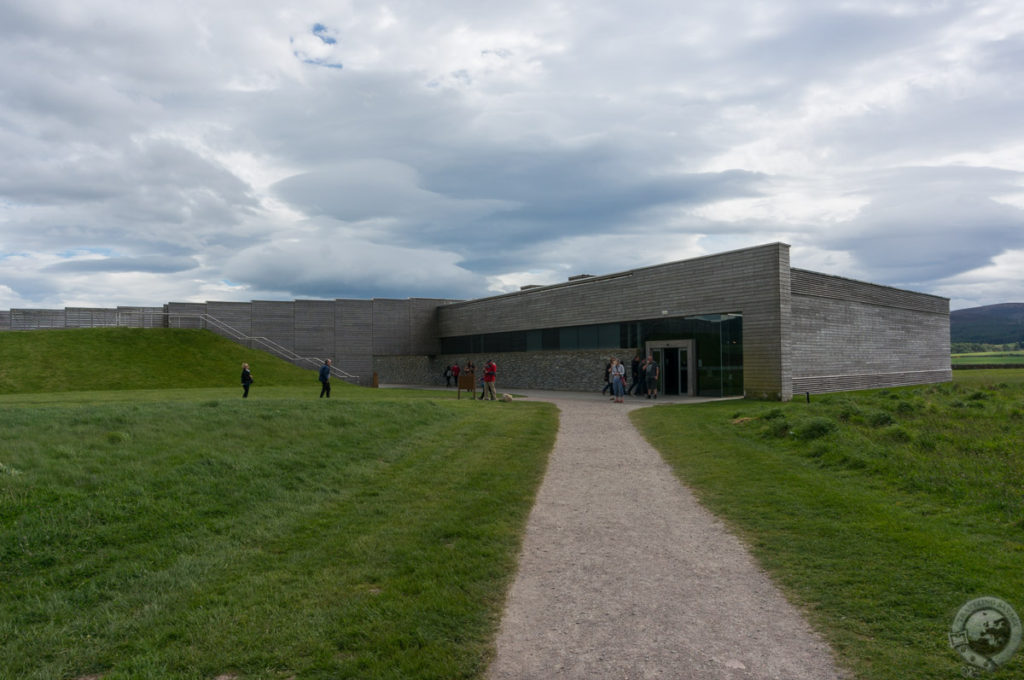
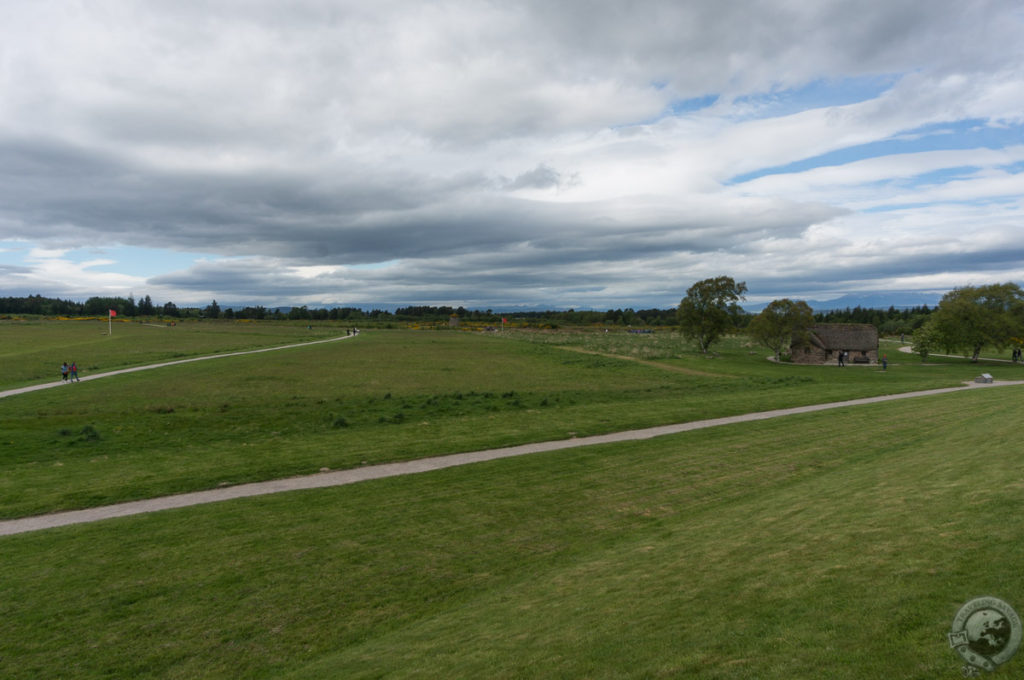
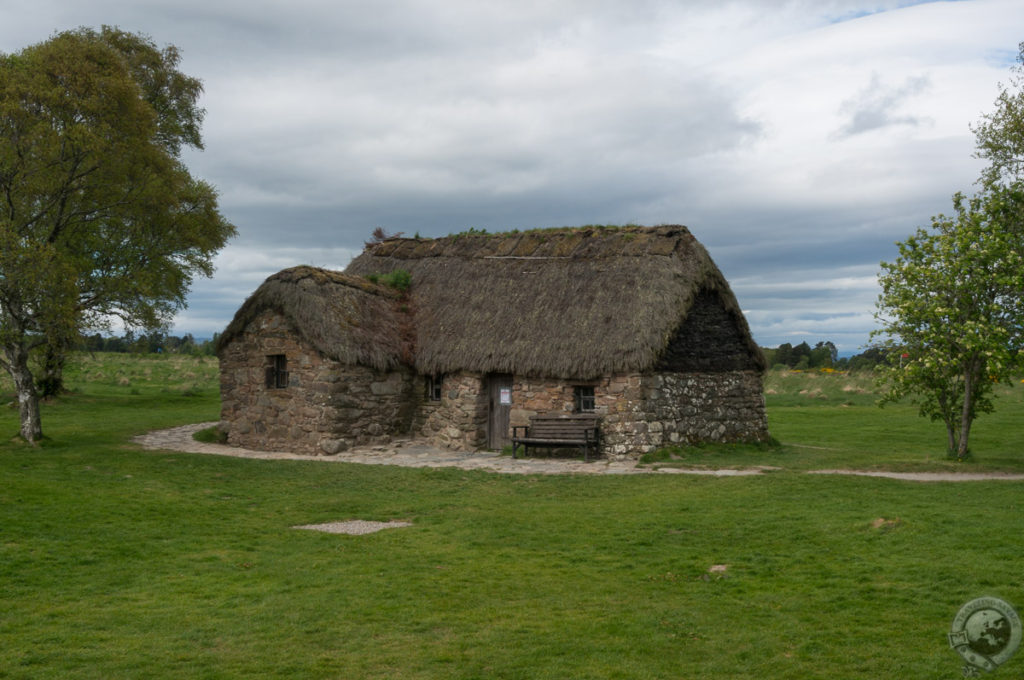
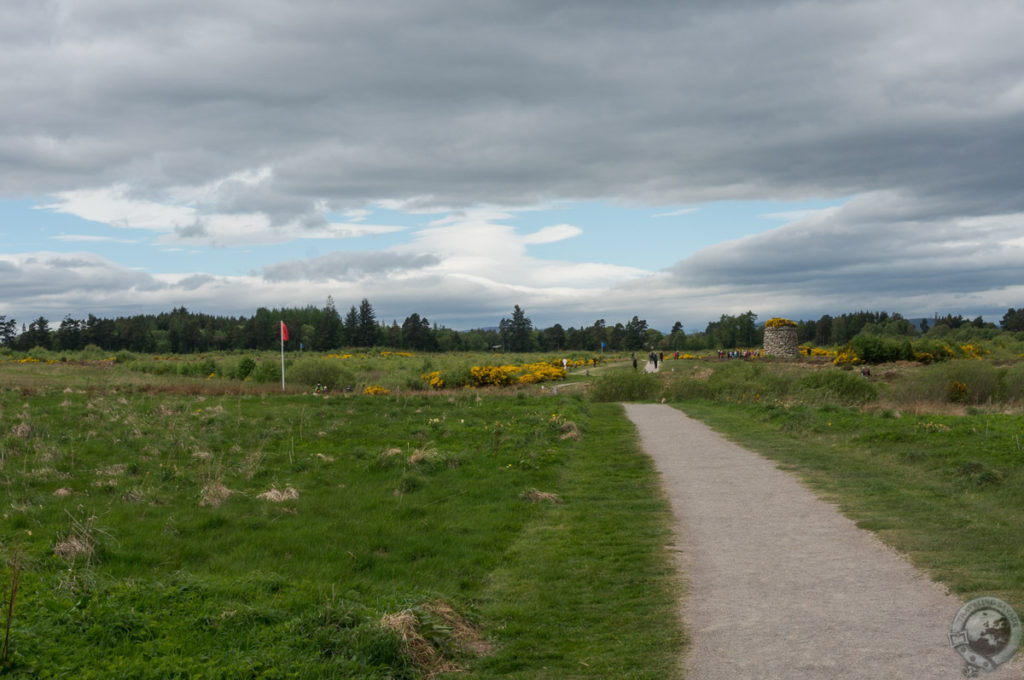
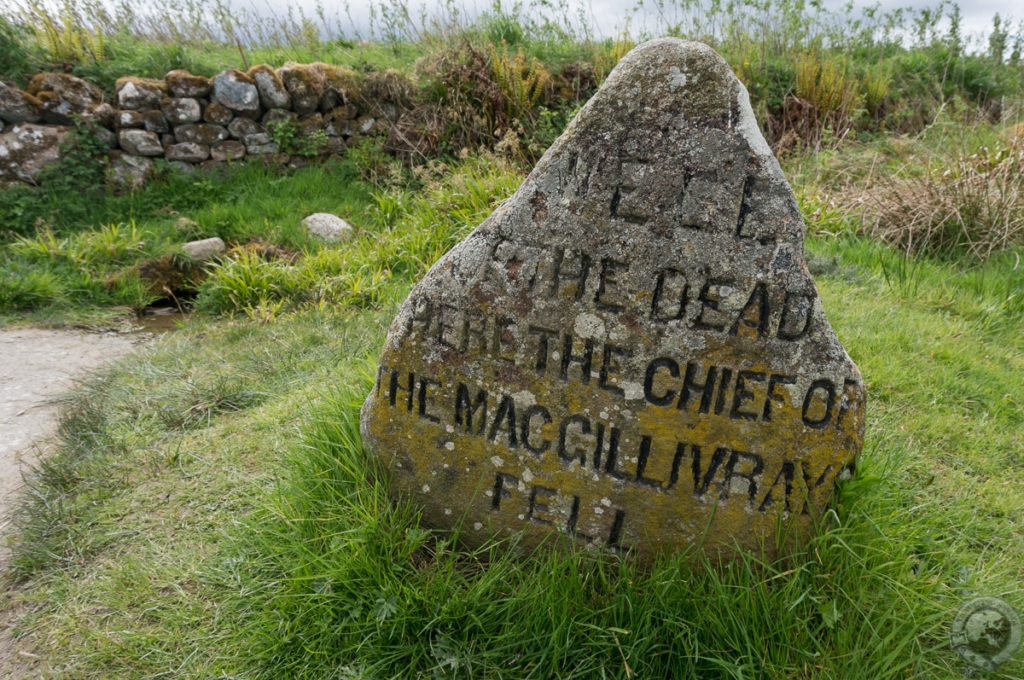
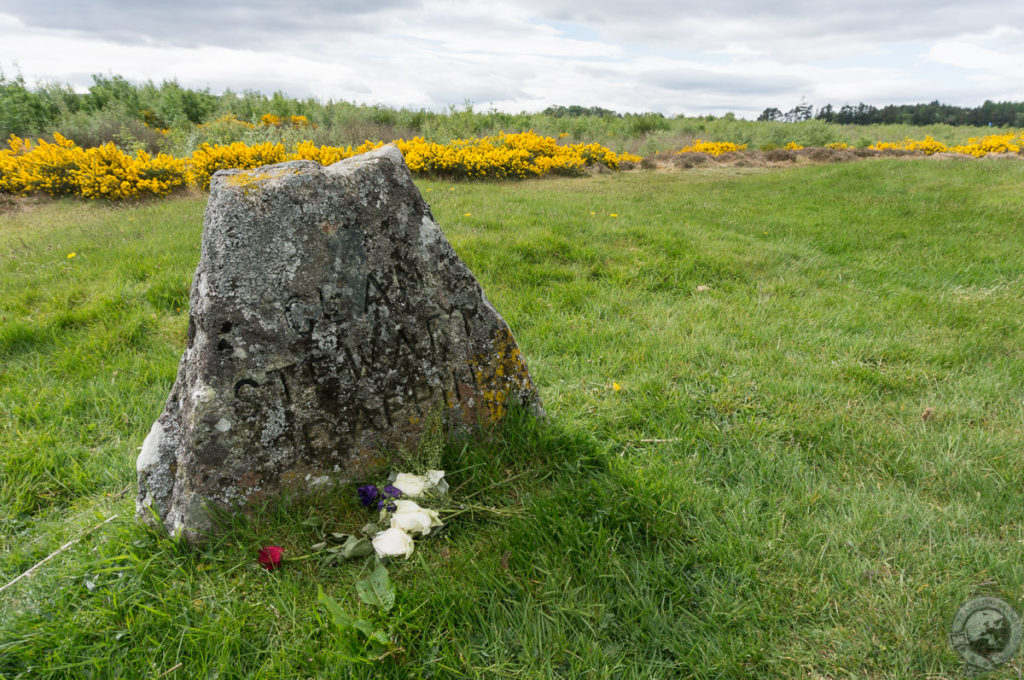
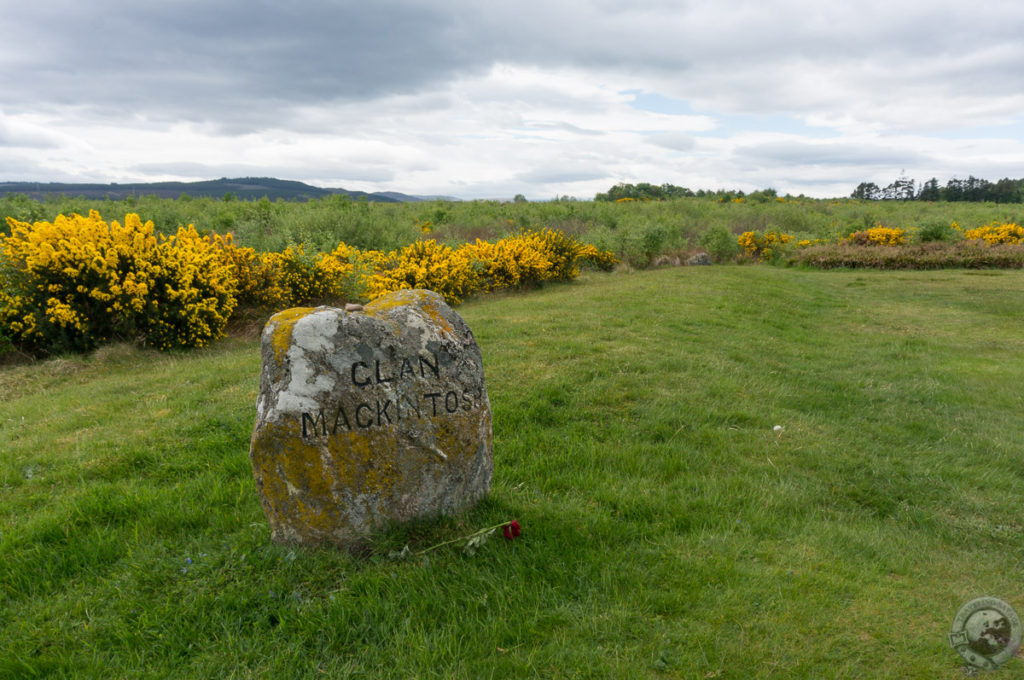
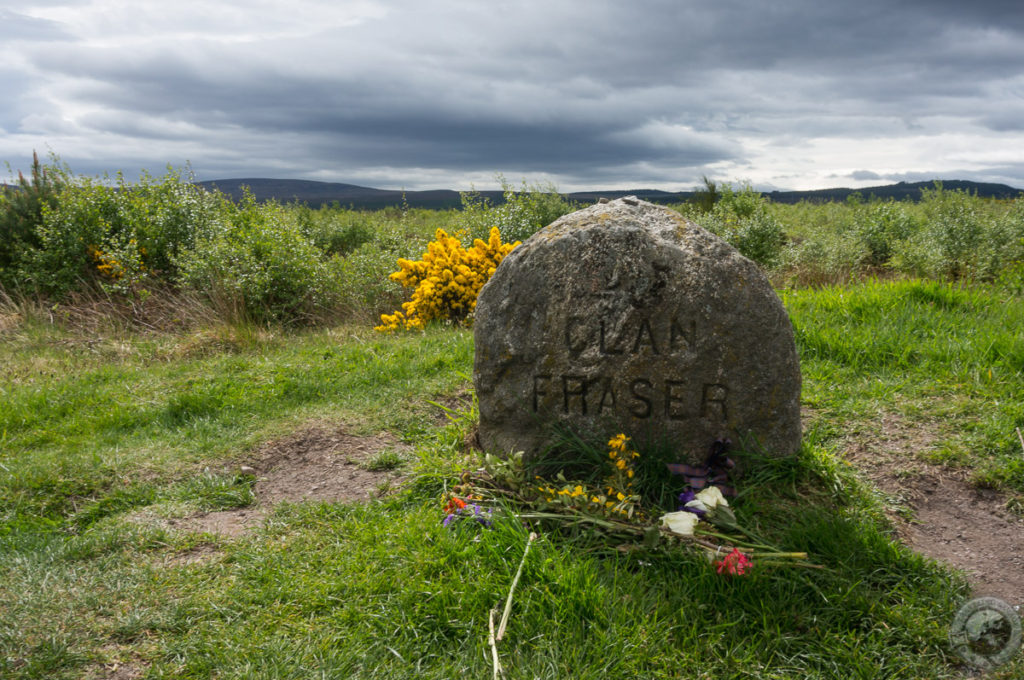
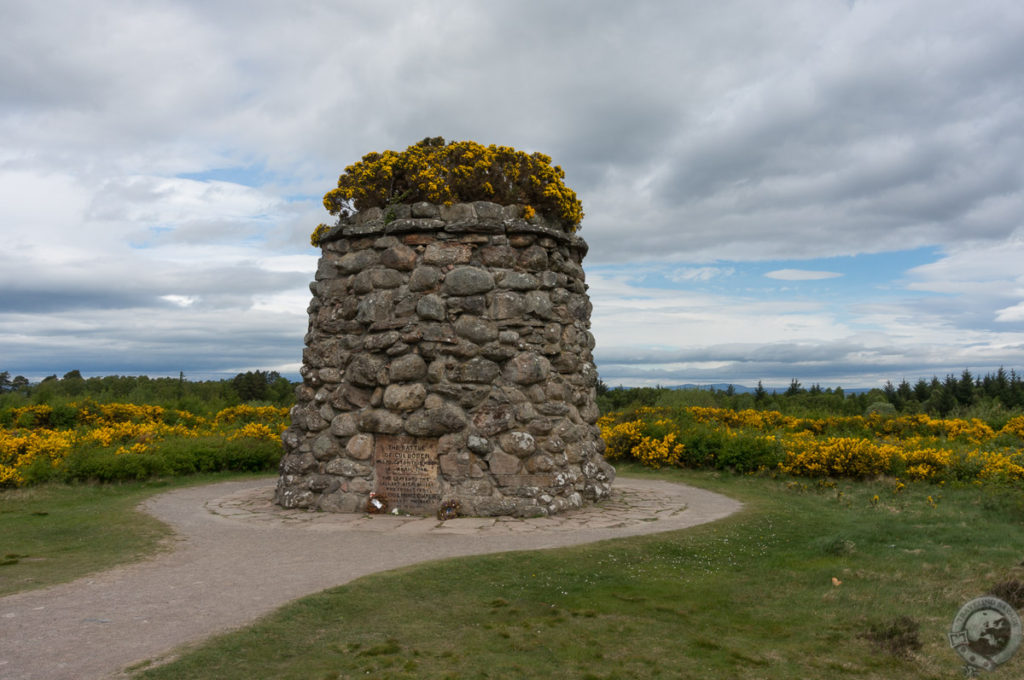
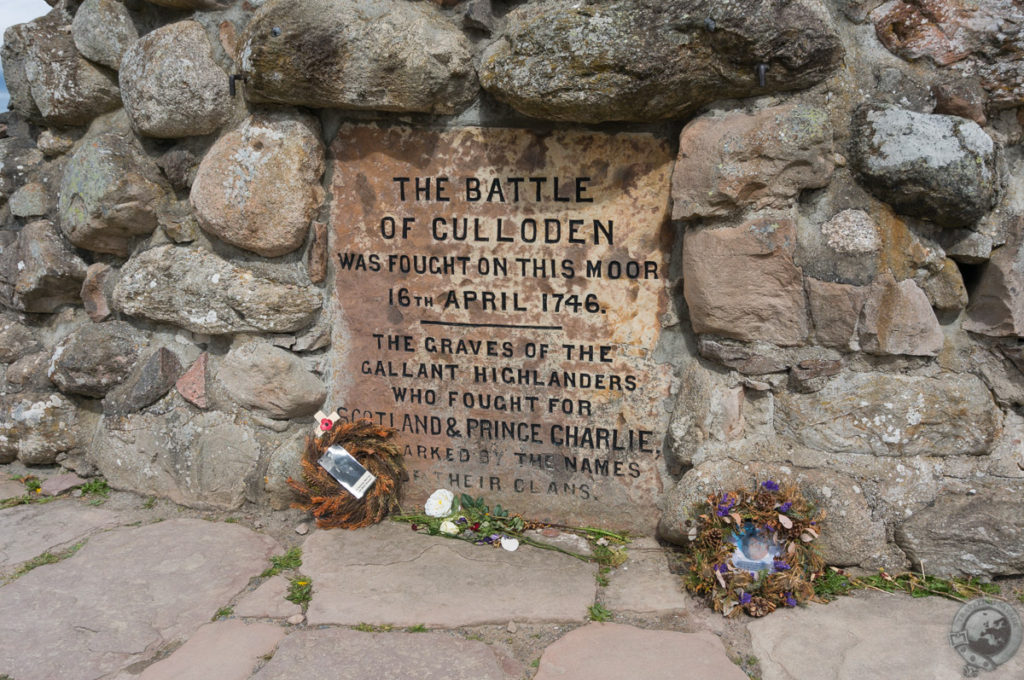
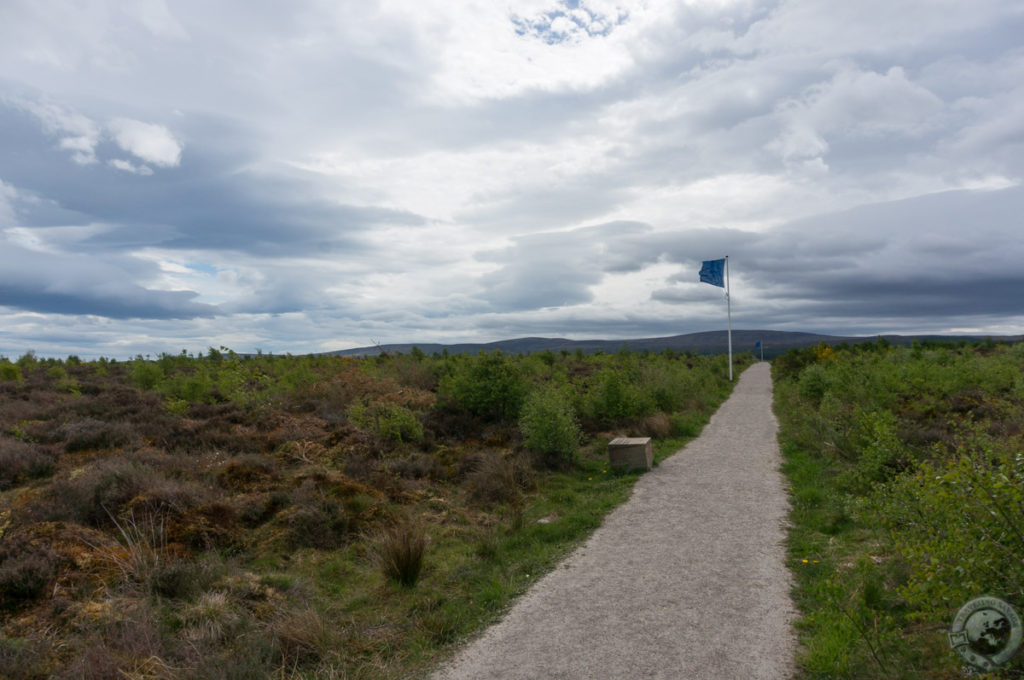
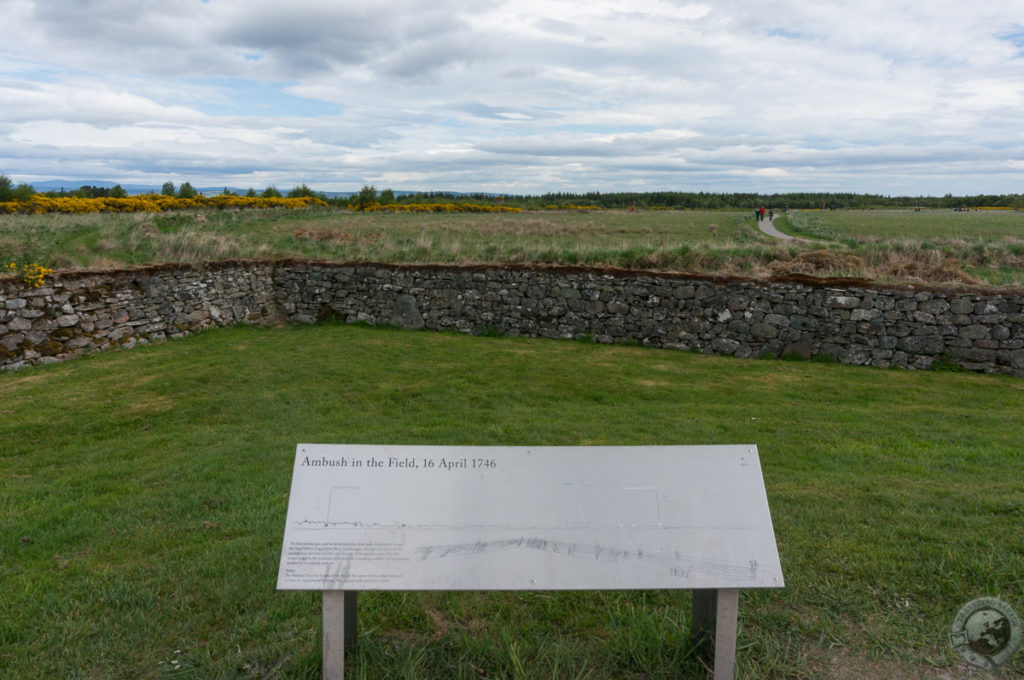
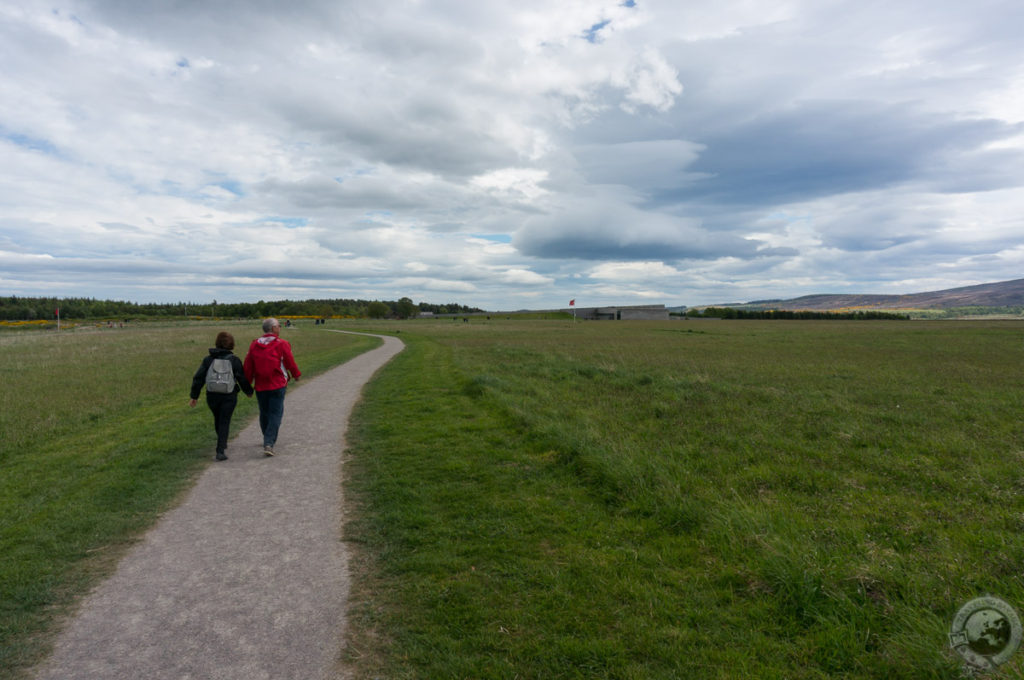
I visited Culloden the first time I was ever in Scotland and though I enjoyed the country tremendously, it wasn’t till later that I fell so deeply in love that not a week goes by in which I don’t long to return. And yet even during that first visit, I felt exactly what you talk about here. It’s a sad but powerful place. I’d like to go back now that the visitor’s center has been updated.
It is certainly worth a visit.
I’ve yet to set foot on Scottish soil, sadly. A friend went there years ago and took the same photo you did of the line of the poem on the wall, and it spoke to me. I now have it on my arm, in Gaelic.
The essence of what Culloden represents is enormous, just as you wrote. We know what happened, but it’s curious to think about what would have happened if Charlie hadn’t returned and proceeded as he did, or if he and the Jacobites had succeeded..? I know there are some that aren’t happy with Charlie due to the aftermath. But the chance of freedom against an oppressor, whatever form it may come in, can be hard to turn away from.
Thanks again for your insight. Your line “Like the bones of a child, Culloden Battlefield has been preserved lest the memory fleet” speaks volumes.
Thanks for reading, Dave, and sharing your thoughts.
Was there last year with my 10 yr old grandson.
Was an excellent visit and was so impressed with the museum and the brilliant and informative staff!
We were at Culloden in September 2019. The weather was terrible, wind, rain and overcast skies. We walked nearly all of the paths mostly looking for the Cameron Clan marker, which we found. My ancestors back to the late 1700’s were born on the Isle of Mull (Great Great Grandfather) and the Isle of Iona (Great Great Grandmother). Our 1st trip to Scotland, we stayed for 6 weeks and traveled by bus and train from the West Coast to the East Coast. Culloden was an erie heatbreaking experience. I have no fond feelings for Charlie. Mull and Iona were exilerating
Thanks for sharing your experience, Robert.